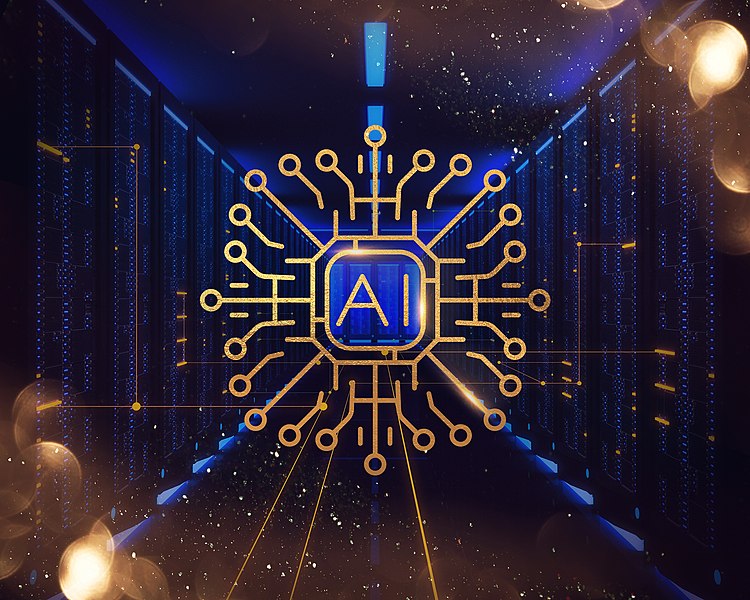The field of Artificial Intelligence (AI) is poised for exponential growth, promising significant advancements and transformations across various sectors. As we delve into the potential future of AI, it’s crucial to consider its impact on forthcoming generations.
Profound Opportunities
- Enhanced Problem-Solving: AI’s ability to analyze vast datasets presents a unique opportunity to tackle global challenges. From mitigating climate change and resource depletion to combating disease outbreaks, AI can empower future generations to build a more sustainable and healthy planet.
- Personalized Experiences: AI has the potential to personalize education, healthcare, and even entertainment experiences. This could lead to more effective learning methods, preventative and personalized healthcare approaches, and immersive entertainment tailored to individual preferences.
- Augmented Human Potential: Far from replacing humans, AI can act as a powerful collaborator. Imagine AI assisting in scientific research, accelerating discovery in medicine, materials science, and beyond. This collaborative approach could lead to breakthroughs previously unimaginable.
- Improved Quality of Life: AI-powered applications have the potential to streamline daily life experiences. Smart homes that optimize energy usage, self-driving cars that enhance transportation safety, and AI assistants that manage schedules efficiently are just a few possibilities.
Challenges and Considerations
- Job Market Transformation: Automation by AI will undoubtedly reshape the workforce. Future generations might require a focus on skills that complement AI, such as critical thinking, creativity, and problem-solving abilities, to adapt and thrive in a changing job market.
- Ethical Considerations: Bias in AI algorithms can perpetuate existing societal inequalities. It is imperative to develop AI with robust ethical frameworks in place to mitigate bias and ensure fairness in its applications.
- Privacy and Security: As AI interacts with vast amounts of data, robust data security practices and regulations will be crucial to protecting individual privacy in the future.
- Transparency and Explainability: Complex AI systems can be opaque in their decision-making processes. Future generations might need to develop methods to ensure transparency and explainability in AI, allowing for human oversight and control.
- The Inequality Gap: Unequal access to AI technology could exacerbate existing inequalities. Efforts to bridge the digital divide will be essential to ensure that everyone benefits from the advancements of AI.
Steering Towards a Positive Future
The impact of AI on future generations rests heavily on the choices we make today. To ensure a positive outcome, we must:
- Prioritize Human-Centered AI: Develop AI that complements and augments human capabilities, focusing on solving problems for the greater good of humanity.
- Champion Ethical Development: Embed ethical principles into the core of AI development, actively mitigating bias and promoting fairness in algorithms.
- Promote Equitable Access: Ensure equitable access to AI education and resources to bridge the digital divide and foster a future where everyone benefits from this technology.
- Develop Transparent Systems: Strive for transparency and explainability in AI systems, allowing for human oversight and responsible control.
- Cultivate Lifelong Learning: Encourage continuous learning to equip future generations with the skills needed to thrive in an AI-driven world.
By addressing these challenges and prioritizing responsible development, AI can become a powerful tool for shaping a brighter future for generations to come. A future where humans and AI collaborate to solve complex problems, create a more sustainable world, and unlock possibilities that lie beyond our current comprehension.
Bridging the Gap for a More Robust Future
The field of Artificial Intelligence (AI) is experiencing a period of rapid advancement, driven by a global effort to harness its potential for solving complex problems. However, a critical aspect to consider is the underrepresentation of women in AI development teams. While there may not be inherent cognitive differences between men and women in this field, sociocultural factors create disparities in participation.
Challenges to Female Inclusion:
- Persistent STEM Gender Gap: A disparity in educational pathways exists, with fewer girls pursuing STEM fields that act as a foundation for AI development. This limits the pool of qualified female talent entering the workforce.
- Unconscious Bias: Unconscious biases within the tech industry can disadvantage women in recruitment, promotion, and access to funding opportunities. This hinders their ability to contribute meaningfully to AI advancements.
The Value of Diversity:
Including women in AI development teams brings a multitude of benefits:
- Enhanced Innovation: Diverse perspectives lead to a richer brainstorming process, fostering the identification and mitigation of potential biases that might be overlooked in homogenous teams. This results in more robust and inclusive AI solutions.
- Societal Focus: Research suggests that women in AI development are more likely to champion the responsible development and deployment of AI, focusing on solutions that address real-world problems and benefit society as a whole.
- Role Model Effect: The success stories of women in AI serve as powerful inspiration for future generations, particularly young girls, to pursue careers in this transformative field. This paves the way for a more diverse and talented workforce in the future.
Recommendations for Progress:
- STEM Education Initiatives: Initiatives promoting STEM education for girls from a young age are crucial to create a robust pipeline of future female talent in AI.
- Bias Awareness Programs: Implementing unconscious bias awareness training programs within the tech industry can help mitigate these biases and create a more inclusive environment for women.
- Supportive Work Cultures: Fostering supportive work cultures that value diverse perspectives and empower women to thrive is essential to retain and attract top female talent in AI development.
Bridging the gender gap in AI development is not simply about fairness, but about unlocking the full potential of this technology. By promoting inclusivity and harnessing the diverse perspectives women bring to the table, we can ensure a more robust and impactful future for AI that benefits all of humanity.











